History of the Sport of Darts in Germany
Inspired by my acquaintance with Dr. Patrick Chaplin, the Doctor of Darts, who researches the history of the sport of darts in England, it caught my eye no history of the sport of darts in Germany exists. Neither the clubs nor the German national organisation have on their internet sites some kind of historical summary. The internet doesn't date back far enough, contemporary witnesses are difficult to find and probably only few of them are aware, that what they would have to tell could be important and will soon pass into oblivion.
The sport of darts got more and more popular over the recent years in Germany but no one bothered to record the history for the posterity, though people in Germany are interested in Patrick Chaplin's researches. Not only has the sport in England had a history but also in Germany. Players and Officials shaped the sport and helped to develop it by their commitment. The inquiries are not easy but slowly a clearer image becomes apparent, some gaps could be filled and it was necessary to rewrite my first version of the history of the sport of Darts in Germany.
The early years
Though the beginnings of the sport of darts in Germany are not really far in the past it is rather difficult to find out any details.There is no evidence the sport of darts was known in Germany before the World War II. Probably it were the Second World War and the British, American and Canadian military present in Germany after the war that brought darts into the country.
It is known that German prisoners of war brought home wooden darts from England. It's doubtful they ever played back at home with their friends but of course it might have been they brought back home paper dart boards as well.
 What happened in the first 25 years after the war no one seems to remember. British, American and Canadian soldiers to be sure played darts on their bases. Probably the British soldiers brought their equipment from home though of course the organised sport of darts as we know it today didn't exist in the UK before the founding of the BDO in 1973. Tungsten darts were rare to not known in those years, instead of wood now brass darts were used and it took till in the 1960s before sisal dart boards were developed. One can assume that German civilians working for and with the military came in contact with the sport as well years before the DDV was founded and played darts - probably often on the bases but might be in the pubs and bars which were frequented by military personnel as well.
What happened in the first 25 years after the war no one seems to remember. British, American and Canadian soldiers to be sure played darts on their bases. Probably the British soldiers brought their equipment from home though of course the organised sport of darts as we know it today didn't exist in the UK before the founding of the BDO in 1973. Tungsten darts were rare to not known in those years, instead of wood now brass darts were used and it took till in the 1960s before sisal dart boards were developed. One can assume that German civilians working for and with the military came in contact with the sport as well years before the DDV was founded and played darts - probably often on the bases but might be in the pubs and bars which were frequented by military personnel as well.
Dr. Eddie Norman
As Eddie Norman - international darts promoter and darts dealer - tells he helped organise quite a few tournaments in Germany before 1970 in cities like Heidelberg, Munich, Bremen and Berlin. Beside at this time he had already set up eight agents in Germany who traded his range from the International House of Darts in Bristol. The International House of darts sold all kind of equipment you needed for the sport. Many of Norman's agents originated from the UK and came to Germany as military personnel and their families.Germany was not the only country on the continent where Eddie Norman and his brother Peter made the sport of darts known. The approach of the Norman brothers always was the same (and still is as DR. Eddie Norman still is on the road and brought the sport of darts by now even into countries like Nepal or Mongolia). Eddie Norman visited different countries - often invited by representatives of economy or sport - and searched for people who were willing to sell the goods of his House of Darts. Beside he helped to organise tournaments or to set up leagues and told the people how to play darts.
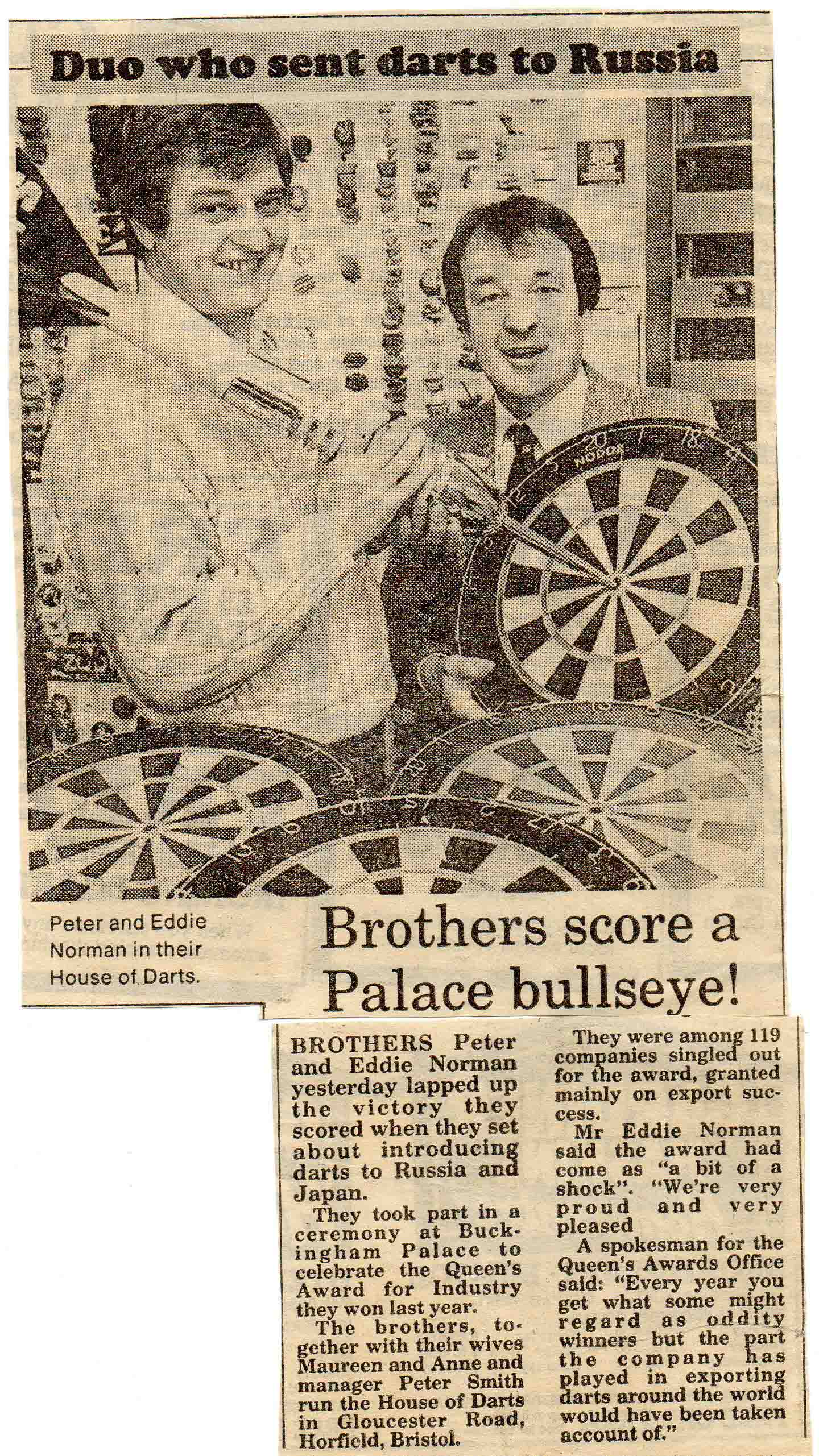 Some of his agents called their shops "House of Darts" as well. In Amsterdam till today a "House of Darts" exists though the owner has changed many years ago and several times. In Finland, Belgium and Sweden once existed a "House of Darts" as well. In German Norman supplied agents in Munich, Frankfurt, Erlangen, Hamburg and other towns. Beside of course you could find independent dart dealers like Bob Ryan in Neu-Isenburg who was the first German darts wholesaler as well with own contacts to English dart companies. Eddie Norman still remembers dart dealers like Ryan were Joe Scott in Heidelberg who run his shop together with some Americans from the US Army - but who as it looks came in conflict with the law and returned to England where he passed away some years ago -and Welshman Peter Lewis in Munich - who sold as Dieter Schutsch remembers Darts videos with the Top players of the 1980s as well and organised exhibitions. The Bavarian Darts Centre doesn't exist anymore, but 180Darts continues with Peter's son David, who as well produces custom made darts.
Some of his agents called their shops "House of Darts" as well. In Amsterdam till today a "House of Darts" exists though the owner has changed many years ago and several times. In Finland, Belgium and Sweden once existed a "House of Darts" as well. In German Norman supplied agents in Munich, Frankfurt, Erlangen, Hamburg and other towns. Beside of course you could find independent dart dealers like Bob Ryan in Neu-Isenburg who was the first German darts wholesaler as well with own contacts to English dart companies. Eddie Norman still remembers dart dealers like Ryan were Joe Scott in Heidelberg who run his shop together with some Americans from the US Army - but who as it looks came in conflict with the law and returned to England where he passed away some years ago -and Welshman Peter Lewis in Munich - who sold as Dieter Schutsch remembers Darts videos with the Top players of the 1980s as well and organised exhibitions. The Bavarian Darts Centre doesn't exist anymore, but 180Darts continues with Peter's son David, who as well produces custom made darts.
At the start of the 1970's Eddie Norman helped to build up a Munich darts League which he sponsored for some time. Beside he organised several tournament for example the German Open Individual Championship in Heidelberg 1971 in which around 300 players took part among them his brother Peter. Beside he supported the International Championships 1979 and 1980 in Germany. But to all it became quite obvious that to establish the sport in Germany and to standardize it one would need a national organisation and Norman ended his activities in Germany.
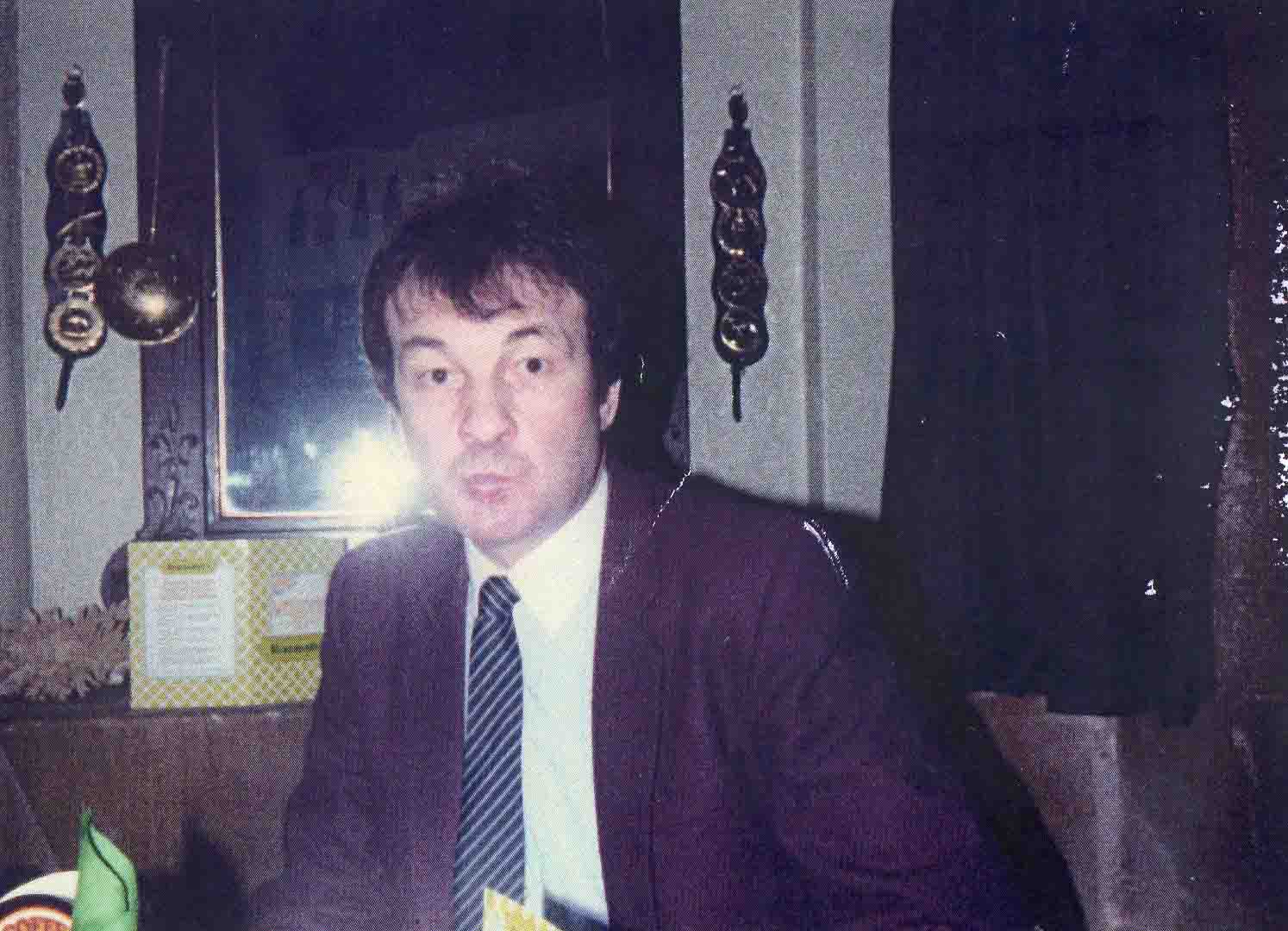 Eddie Norman in those years was not only important for the development of the sport on the European continent but back home in England as well. He sponsored players in the UK as well and organised tournaments. He was involved in the first few years of building up the BDO and it is he whom we owe the Winmau World Masters, a tournament which due to its field of participants really deserved the name "World" much more for many years than the two World Championships which only got really international during the recent years. It is a shame that the BDO and the WDF don't seem able to market the tournament in the way it would deserve it.
Eddie Norman in those years was not only important for the development of the sport on the European continent but back home in England as well. He sponsored players in the UK as well and organised tournaments. He was involved in the first few years of building up the BDO and it is he whom we owe the Winmau World Masters, a tournament which due to its field of participants really deserved the name "World" much more for many years than the two World Championships which only got really international during the recent years. It is a shame that the BDO and the WDF don't seem able to market the tournament in the way it would deserve it.
An early "guest player" from England: Bill Perry
Only known by name is Englishman Bill Perry from Worcester, who travelled around in Germany in the 1960s and 1970s and took part in several tournaments. It seems he took a lot of pictures and collected press snippets as well. But Perry passed away some years ago and nobody knows what happened to all those pictures and snippets which to be sure would have been very interesting for us here in Germany.Michael Fechner - the Unicorn pairs World Championships 1975 and 1976
The first German dart players who appeared "internationally" on stage were the two men's pairs who took part in the Unicorn Pairs World Championships 1975 and 1976 in London. The four players - Roland Geuss and Roland Kaiser in 1975 and Michael Fechner and Georg Egender in 1976 - travelled as West German Champions to London which means they had qualified by a qualification event, which probably/might be was organised by German dart dealers. All four players already had some years of experience playing darts and all four came from the South West of Baden-Württemberg - from Freiburg and Donaueschingen.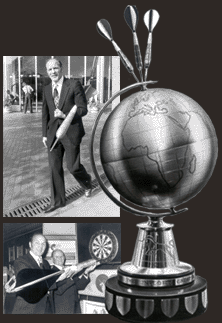 Michael Fechner told me: "Georg Egender and me played during our studies at the beginning of the 1970s for some years in the Tudor Pub in Freiburg. The Tudor Pub had an own team and we both went there almost every day to play darts. At this time there didn't exist a local league, but the players from Freiburg had close contacts to Basel and Zürich were for quite a long time already darts was played intensively. Every year in Freiburg a tournament took place which was called "German Championship" despite it was only a regional event. The winners of this tournament were sent to London in the years 1975 and 1976 to take part in the Unicorn pairs championship. The tournament was sponsored by Nodor which was responsible for the boards and Unicorn which produced mostly darts at that time. The tournament took place in the West Center Hotel in London. During a tournament weekend first the International Invitation Cup was played and the next day the Unicorn Pairs World Championship." Fechner remembers he and his partner lost against the Swiss pair from Geneva in the Invitation Cup and in the World Championship against the English champions James Jewell and Robert Baxter against whom they had no chance at all.
Michael Fechner told me: "Georg Egender and me played during our studies at the beginning of the 1970s for some years in the Tudor Pub in Freiburg. The Tudor Pub had an own team and we both went there almost every day to play darts. At this time there didn't exist a local league, but the players from Freiburg had close contacts to Basel and Zürich were for quite a long time already darts was played intensively. Every year in Freiburg a tournament took place which was called "German Championship" despite it was only a regional event. The winners of this tournament were sent to London in the years 1975 and 1976 to take part in the Unicorn pairs championship. The tournament was sponsored by Nodor which was responsible for the boards and Unicorn which produced mostly darts at that time. The tournament took place in the West Center Hotel in London. During a tournament weekend first the International Invitation Cup was played and the next day the Unicorn Pairs World Championship." Fechner remembers he and his partner lost against the Swiss pair from Geneva in the Invitation Cup and in the World Championship against the English champions James Jewell and Robert Baxter against whom they had no chance at all.
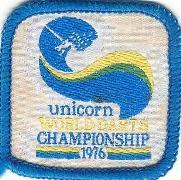 As a kind of consolation price the two German players got a set of silver Unicorn Darts with which they played in the pub. But soon after this Fechner and Egeneder had finished their studies and left Freiburg for good. As more or less no dart pubs or clubs existed at that time they both stopped playing. Michael Fechner never warmed to the at this time already prospering soft-darts and its machines.
As a kind of consolation price the two German players got a set of silver Unicorn Darts with which they played in the pub. But soon after this Fechner and Egeneder had finished their studies and left Freiburg for good. As more or less no dart pubs or clubs existed at that time they both stopped playing. Michael Fechner never warmed to the at this time already prospering soft-darts and its machines.
Germany was not involved in the founding of the WDF in 1976 during the second Unicorn Pairs World Championship - probably because at that time years before the DDV was founded no national officials and no national organisation existed.
The Tudor Pub in Freiburg where you probably could play darts since 1970 is one of the oldest known German dart pubs. It doesn't exist anymore but today you can find an Irish Pub Blarney in Freiburg though it only offers a soft-darts machine.
The 1970s and 1980s
A national organization before the founding of the DDV?
Eddie Norman remembers he heard from John Ross, the chairman of the National Darts association of Great Britain, a predecessor and for a short time rival organisation of the BDO, that one or more German players end of the 1960s/beginning of the 1970s tried to found a West German Darts Association. But Johnny Ross passed away some time ago and no more is known about the West German Darts Association.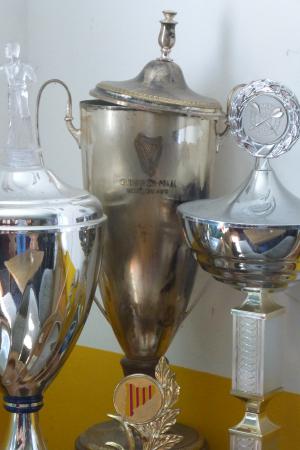
Bob Ryan - pioneer of the sport of darts in Germany
One of the oldest German dart clubs was founded in 1973 in the Frankfurt region, the Dartklub Rhein Main, whose chairman Bob Ryan was for many years. Ryan played a very important part in the development of the sport of darts in Germany. He is US American and first came into contact with the sport in Germany. Though neither his American nor German colleagues played they together often spent their evenings in the Anglo Irish Pub of Tom Twyer in the "kleine Rittergasse" in Sachsenhausen where the English regulars had hang up a board. It didn't take long and Ryan and his mates stood at the oche as well.Bob Ryan stayed in Germany and became a key figure in the further development of the sport. He founded his own dart club which first found a home on the airbase in Zeppelinheim. He organised matches against other pub or army teams. Soon he realised there was a lot to do - bigger tournaments were rare to nonexistent, the teams were widely scattered and not in contact with one another, most equipment the soldiers brought back from England when they were on home leave, in Germany only existed a few pedlars with a very small range and at that time no standardised rules existed for playing. So he decided to sell darts equipment as well in the cycle shop he and his wife owned. He had to fight a lot of difficulties at the start but he established contacts to England, visited darts companies there and in 1976 organised the first unofficial German Darts Championship. Two years later he organised a second edition, much bigger and sponsored by Guinness and Trulon Darts (a manufacturer which doesn't exist anymore). He met the German representative of Guinness in the Anglo Irish Pub.
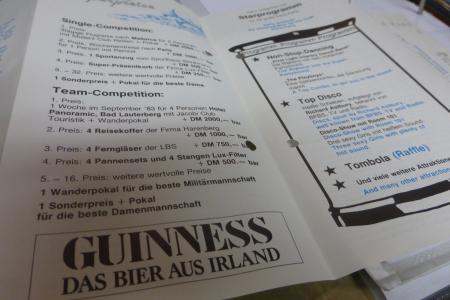 The tournament was announced as Guinness Open and took place in the Jahrhunderthalle in Frankfurt. More than 200 players from Germany took part - in the times before the internet really a big number. Bob Ryan who was well aware one had to organise the sport in Germany and that a national organisation was necessary, used this and other tournaments he organised to collect addresses.
The tournament was announced as Guinness Open and took place in the Jahrhunderthalle in Frankfurt. More than 200 players from Germany took part - in the times before the internet really a big number. Bob Ryan who was well aware one had to organise the sport in Germany and that a national organisation was necessary, used this and other tournaments he organised to collect addresses.
Winner of the Guinness Open was Irishman Jimmy Hughes from Frankfurt.
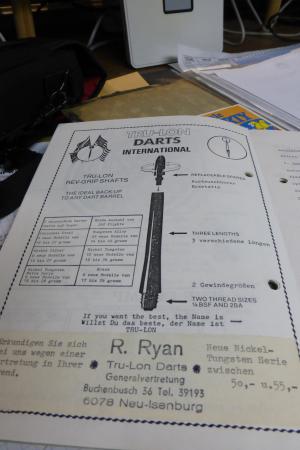 A short note on Trulon - a company probably not generally known: Trulon was the name of the darts which the Robin Jig and Tool Company started to produce in the 1970s in London. They produced nickel tungsten and brass darts and sponsored quite a few players like Willie Etherington, Paul Gosling and Tony Bell. In 1976 Unicorn took the company to court as it sold darts with the name "Bullet", which was used by Unicorn as well, but lawsuit was dismissed. It's not known exactly when the company closed down.
A short note on Trulon - a company probably not generally known: Trulon was the name of the darts which the Robin Jig and Tool Company started to produce in the 1970s in London. They produced nickel tungsten and brass darts and sponsored quite a few players like Willie Etherington, Paul Gosling and Tony Bell. In 1976 Unicorn took the company to court as it sold darts with the name "Bullet", which was used by Unicorn as well, but lawsuit was dismissed. It's not known exactly when the company closed down.
In the end Bob Ryan chucked his job on the airbase and became the first darts wholesaler in Germany. He often travelled to Great Britain, cultivated his contacts to Trulon, of whom Ryan remembers that the company was the first to produce tungsten darts, stocked up on dartboards at Winmau or Nodor and looked for dart supplies of all kinds. At this time it was not easy - there didn't exist any internet business - not even an internet - and the postage was very high. Ryan was not in contact with Unicorn and can't remember who Unicorn's agents in Germany were. Might be it at this time was the already mentioned Joe Scott. For some years now Dutchman Herman Stiens is the German Unicorn chief agent.
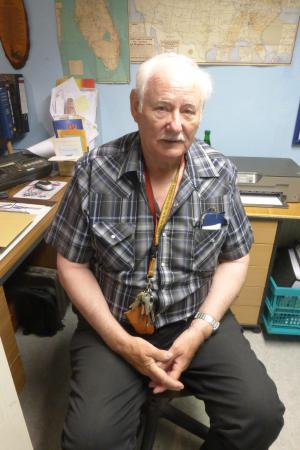 Soon Ryan had another great and very practical idea. As it was for many dart clubs - who had no venue and not the necessary equipment - not possible to organise events Ryan build a mobile dart system with boards and oches the clubs could loan. Many tournaments and exhibitions in Germany were played with it - and beside Bob Ryan and his wife for many years travelled with it to the Costa Brava and there organized holiday events with quite decent price money. Players from around 16 countries took part in those.
Soon Ryan had another great and very practical idea. As it was for many dart clubs - who had no venue and not the necessary equipment - not possible to organise events Ryan build a mobile dart system with boards and oches the clubs could loan. Many tournaments and exhibitions in Germany were played with it - and beside Bob Ryan and his wife for many years travelled with it to the Costa Brava and there organized holiday events with quite decent price money. Players from around 16 countries took part in those.
For a few years Ryan was the chairman of the Hessian darts organisation. By now the Ryans have retired and sold their shop Ryansport in Neu-Isenburg. But of course Ryan still plays darts and it was Ryan who managed to get his club in Neu-Isenburg a real home after it again and again had to change its pub. Since 2010 it has its own club house and club house and grounds are shared with the poultry breeder society Neu-Isenburg. Ryan is member of the board and beside honorary chairman of the dart club. Once a week he still practices with the team. The dart club has today 42 members and teams in different leagues.
Marco Müller and the DC 81 Karlsruhe
The probably oldest darts club in Baden, might be even Baden Württemberg, is the in 1981 founded DC 81 Karlsruhe. How it came about the club was founded board member Marco Müller told as follows: "Sometime in 1980 two men with a dartboard carried under the arm came into the pub where I worked - called "Fuchsbau" - and asked whether they could hang up the board. In this case it were two Germans who were members of a dance school where the board till now had been hanging up.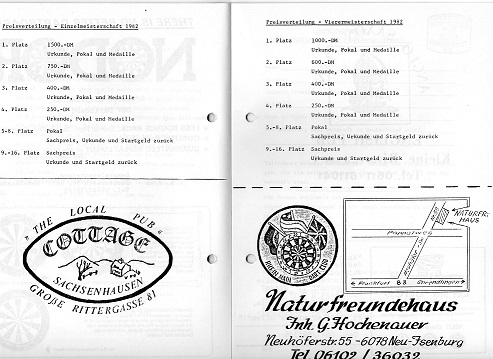 I can't remember why it was not possible any longer but the two men wanted to found a darts club. My friends and me were curious and allowed them to hang their board. They explained the rules to us, we tried and we were hooked. 1981 we founded the club. We immediately played against other clubs in Baden, became a few times North-Baden Champion and Rainer Hüper - who today is our second chairman - 1987 reached the last 16 of the German Championship. At this time around half a dozen clubs existed in Karlsruhe, usually mixed teams with men and women though with far less women than men."
I can't remember why it was not possible any longer but the two men wanted to found a darts club. My friends and me were curious and allowed them to hang their board. They explained the rules to us, we tried and we were hooked. 1981 we founded the club. We immediately played against other clubs in Baden, became a few times North-Baden Champion and Rainer Hüper - who today is our second chairman - 1987 reached the last 16 of the German Championship. At this time around half a dozen clubs existed in Karlsruhe, usually mixed teams with men and women though with far less women than men."
Today the sporting goals of the DC 81 are far less ambitious; the club doesn't even want to move up through the leagues because the members fear that it would ruin all the fun. "And, " as board member Rainer Hüpner says, "we are not good enough anyway." The club always played steel-dart though now-a-days there are far more soft-dart pubs around which offer profitable tournaments.
In the same year as the DC 81 Karlsruhe the Baden dart league was founded with at the beginning only few clubs and even fewer individuals as members (17). For the away matches the clubs had often to travel far.
In 1982 Marco Müller was elected chairman of the Baden Dart League and first of all introduced the standard rules. Till the time he became chairman the usual format of the matches was 301 DIDO, now 501 SIDO was played in league.
From the beginning one played on bristle boards - mostly on Winmau boards. The clubs usually had one or two boards. An exception were the Canadian barracks in Lahr - member of the Baden Dart League as well - where in the officer's mess where league play took place 10 - 18 boards could be found. It was anyways always something special to play there - not only because of the offered food. More important was that one could learn quite some tricks and ruses from the experienced Canadian dart players.
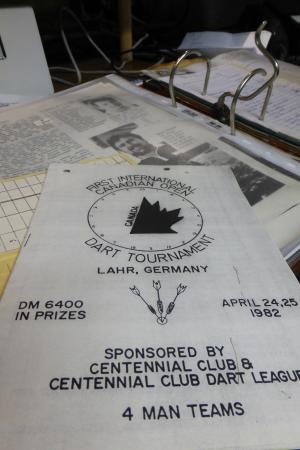
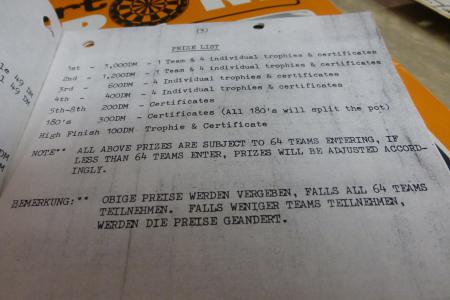
On the league nights two teams of four persons each competed. First four pair's matches were played followed by the meal. After the meal eight single matches were played and after that the "Captain's Game".
At the end of the league season the clubs played for the league cup which was won in the first year it was won by the Lahr club.
Several times the International Karlsruhe Open took place in Karlsruhe in which beside the Germans professional and amateur players from Scotland, England France, Switzerland and the Netherlands took part. The first few International Karlsruhe Opens were played in the "Fuchsbau". Always a single- and a pair's tournament were played. In 1982 the winners of the pairs event were Wolfgang Damm (German Champion) and Mike Weitelt, both from the Cottage Club in Sachsenhausen. When more and more players took part - in the fourth year 1985 it were already 144 dart players, one moved it to the Oststadthalle. In 1985 the winners of the pairs event came from Switzerland: Beat Basler (Swiss Champion) and Roland Mätzener.
In 1982 in the barracks in Lahr the first really big event in Germany took place with participants from Canada, Germany and Switzerland.
Founding of Clubs
End of the 1970s/ beginning of the 1980s everywhere in Germany first dart clubs were founded. Many of those don't exist anymore today. Often British, American or Canadian military was involved for example in Berlin where in Ray's Irish bar a lot of in Berlin stationed British met to play darts. They became friends with guests from other countries, there were Germans, American, Turks, people from Yugoslavia, France, Spain and Sweden and in 1981 they founded a club. The English and Irish members taught the others to play.A similar club was Darts Extraordinaire where German and American air-force members played together. Darts Extraordinaire doesn´t exist any longer, it was disbanded at the beginning if the 1990s when the Americans left Berlin. Some of the players joined the club "Die Reifen" which earlier splitted off Darts Extraordinaire. They still have contact with some British players and some American friends.
There was a third similar club in Berlin - the Jollys - but it doesn´t exist any longer.
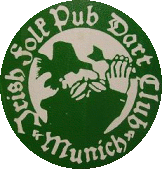 The Ostwestfalen-Lippe-Steeldart-League was composed in the years after the founding 1983 to 70 percent of English dart players. One of them, Pete Hawcroft, still plays for the Bielefelder Hunters. In the Rhein-Hunsrück League for many years an all American dart club existed - the DC Hahn.
The Ostwestfalen-Lippe-Steeldart-League was composed in the years after the founding 1983 to 70 percent of English dart players. One of them, Pete Hawcroft, still plays for the Bielefelder Hunters. In the Rhein-Hunsrück League for many years an all American dart club existed - the DC Hahn.
Other dart clubs were founded at the end of the 1970s or at the beginning of the 1980s which had nothing to do with the military at all. The Germans had developed a special liking for Ireland and Irish pubs in those years, Irish pubs arose everywhere in Germany and of course a real Irish pub had a dartboard at the wall. Most members of those clubs were German. One of the oldest is the Irish Folk Pub Dart Club in Munich founded 1979. A lot of the early German top players started to play there and a lot of the British Top Players of the 1980s and 1990s played exhibitions in this pub.
 In the same year one of the founder members of the DDV, which still exists today, the Dartclub Hameln was founded as well.
In the same year one of the founder members of the DDV, which still exists today, the Dartclub Hameln was founded as well.
One of the early Dart clubs was founded in Bremen - the dart club Broadway e.v. As one of the members, the German legend Bernd Hebecker , remembers it was 1976 or 1977. The founder was the landlord Fips Sattler and it first was played with brass darts on a paper board. Most important for the development of the sport in those years were Wolfgang Damm, the first German champion, and Peter Hummel, later first president of the DDV. Tournaments were already played in Köln and Düsseldorf.
A lot more clubs were founded between 1980 and 1982 for example the "erste Kastellauner Dart Club" in December 1982, the "1. Dartclub Mönchengladbach (might be this one was already founded in 1977), the "1.Dartclub Mühlheim (the Englishmen Colin Rice was one of the founders, he stayed in Mühlheim after his time with the British Army, didn't find a place where to play darts and so founded his "own" club), the "1. DSC Bochum (at this time DC Bananenwurf), the "Marburger Dartclub", the DC Wirtheim, the Dart Club Darmstadt (founded 1980), the DC Kehlheim and the DC 81 Karlsruhe.
The Kastellaun Dart Club was founded because some people from Kastellaun had enjoyed playing darts during a holiday in England and brought over the complete equipment. Some British restaurant owners inspired their guests for the sport as happened with the "Gentlemen Köln". A story one can hear from several clubs is that one day a stranger appeared in the pub carrying a dartboard and asked whether he could not hang it up.
One can assume many more clubs then mentioned here were founded at this time and probably more of them still exist.
DDV - Founding and early years
The situation of the sport of darts in Germany end of the 1970/early 1980s was very confusing. The clubs had rarely to none contact with another, there were a few regional but no really nationwide tournaments, and the rules used for play differed a lot. For Bob Ryan and his fellow-campaigners it was clear - it only could get better when a national organisation would be founded.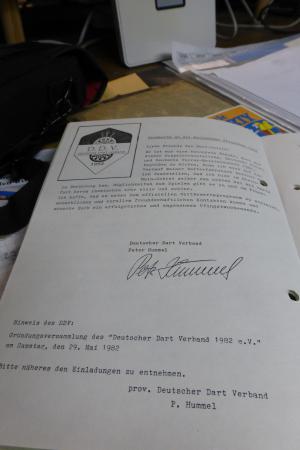 So Ryan organised a few events which he used to collect addresses - in the times before the internet a rather difficult problem - so he could get into contact with clubs or individuals and get them interested in the project. It turned out the difficulties were even bigger then imagined - according to the German law of associations only registered associations were able to found a national organization. At this time there didn't even exist enough registered associations to do so and so a lot of persuading was necessary till enough registered associations were founded who could come to a first formal meeting in 1981.
So Ryan organised a few events which he used to collect addresses - in the times before the internet a rather difficult problem - so he could get into contact with clubs or individuals and get them interested in the project. It turned out the difficulties were even bigger then imagined - according to the German law of associations only registered associations were able to found a national organization. At this time there didn't even exist enough registered associations to do so and so a lot of persuading was necessary till enough registered associations were founded who could come to a first formal meeting in 1981.
The representatives were:
Edgar Martin, Dartsverein München e.V.
Jerry Marcuerquiaga, Dartverein Wiesbaden e.V.
Sigurd Schmitz, Dartverein Bremen e.V.
Ulli Abendroth, Deutscher Dartverein Frankfurt e.V.
Ludger Pelka, Dartclub Zocker e.V., Datteln
Klaus Peter Meißner, Dartclub Hameln 79 e.V.
Hans Jürgen Ruge, Oststeinbecker Darts e.V.
Günter Seidel, Jolly Dartteam Berlin-Spandau e.V.
Hans Studt, Dartclub Lübeck
and Peter Hummel as envoy
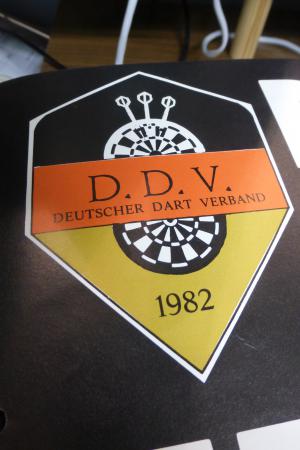 One year later it finally happened - the DDV was founded on April 5th 1982 and Peter Hummel was elected first chairman. The first years of the organisation were difficult and turbulent. It soon turned out it was a problem that none of the members of the board were professional managers, public relation people or approved in accounting. Another even bigger problem was that people involved had their own agendas and the infringe on the associations funds was not uncommon. Often one managed to get well-known players involved. Colin Rice for some time was national coach. Bernd Hebecker was the chairman from 1984 - 1985 and during this time with the help of Bob Ryan the rules of the BDO were translated and applied in the DDV. Bob Ryan himself was Vice president in 1988. It was only in 1985 that 501 Double Out was introduced as the official game in Germany.
One year later it finally happened - the DDV was founded on April 5th 1982 and Peter Hummel was elected first chairman. The first years of the organisation were difficult and turbulent. It soon turned out it was a problem that none of the members of the board were professional managers, public relation people or approved in accounting. Another even bigger problem was that people involved had their own agendas and the infringe on the associations funds was not uncommon. Often one managed to get well-known players involved. Colin Rice for some time was national coach. Bernd Hebecker was the chairman from 1984 - 1985 and during this time with the help of Bob Ryan the rules of the BDO were translated and applied in the DDV. Bob Ryan himself was Vice president in 1988. It was only in 1985 that 501 Double Out was introduced as the official game in Germany.
Another problem which turned up already in his early years for the DDV was the emerging of the soft-dart machines, which in many clubs and pubs replaced the steel-dart boards and got more and more popular. Till today many of the British dart players feel steel-dart is more or less nonexistent in Germany though it is only true that soft-darts is more widespread then steel-dart.
Till today the DDV and the DSAB, the biggest German soft-dart association, don't work together despite there were attempts in the early years at least from the soft-dart representatives to incorporate.
From 433 members in 1982 the number of members increased to 9473 in 1991 - the year when the first WDF tournament took place in Germany.
Early Tournaments
It is not recorded who, when and with which result took part end of the 1970s/start of the 1980s in international tournaments. In 1978 a German team found the way to the WDF Europe Cup in Copenhagen though at this time no national organisation which was member of the WDF existed. Among the players was Tammo Schenderlein, who one year later won the International German Championship and who's reward for this achievement by sponsor Trulon was a journey to the WDF World Cup 1979 in Las Vegas. Other member of the 1978 German Europe Cup team were Irishman and winner of the Guinness Open 1978 Jimmy Hughes, Mike Weigelt and Peter Hummel, later the first chairman of the DDV, who passed away far too early.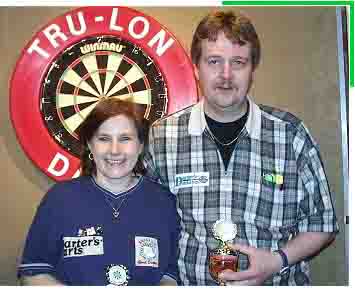 The International German Championships took place in 1980 and 1981 again but it is only known that Colin Rice was runner-up in 1981. Those championships were mixed championships in which men and women took part. Women were from the beginning involved a sactive players in the sport.
The International German Championships took place in 1980 and 1981 again but it is only known that Colin Rice was runner-up in 1981. Those championships were mixed championships in which men and women took part. Women were from the beginning involved a sactive players in the sport.
From 1982 - 1985 both International and National German Championships were played. First German Champion 1982 was Wolfgang Damm.
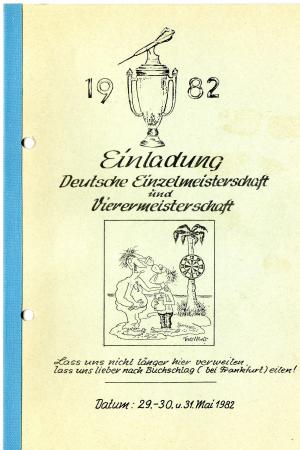 1983 the DDV became member of the WDF and for the first time a German national team traveled to a WDF World Cup which took place that year in Edinburgh. Bernd Hebecker remembers how it went off: "Players were Colin Rice, Peter Hummel, Siegfried Vogel (passed away young) and I; the women were Heather Weigelt and Petra Klump. Team coach was Rolf Kahrau - at this time DDV chairman as well. We traveled quite adventurous by car, had now idea of a dress code and were not in the draw as Rolf Kahrau didn't speak English - so we arrived there but were not registered! Somehow we managed luckily to be included, a great experience!!! Gosh, it was like a quantum leap, what an experience! All who were there wanted to experience it again and again - it was fantastic, we were together with the best players of the WORLD and were able to learn a lot! For Rice and me it was the start of a very long dominance in Germany, I think we had tasted blood!"
1983 the DDV became member of the WDF and for the first time a German national team traveled to a WDF World Cup which took place that year in Edinburgh. Bernd Hebecker remembers how it went off: "Players were Colin Rice, Peter Hummel, Siegfried Vogel (passed away young) and I; the women were Heather Weigelt and Petra Klump. Team coach was Rolf Kahrau - at this time DDV chairman as well. We traveled quite adventurous by car, had now idea of a dress code and were not in the draw as Rolf Kahrau didn't speak English - so we arrived there but were not registered! Somehow we managed luckily to be included, a great experience!!! Gosh, it was like a quantum leap, what an experience! All who were there wanted to experience it again and again - it was fantastic, we were together with the best players of the WORLD and were able to learn a lot! For Rice and me it was the start of a very long dominance in Germany, I think we had tasted blood!"
/
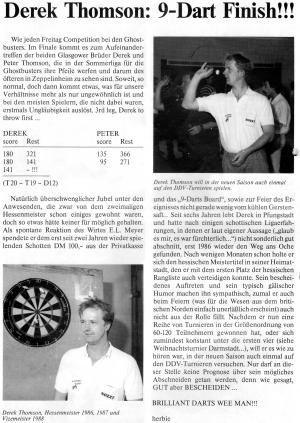 In 1984 for the first time a separate German national women championship took place, the first German champion was Bianca Schmidt.
In 1984 for the first time a separate German national women championship took place, the first German champion was Bianca Schmidt.
1986 the first German men's two persons championship was played. It took till 1993 till the first women's pairs championship followed. 1987 the first boy's championship was played, since 1996 a girl's championship is played as well.
The first German tournament in which you could earn WDF/BDO points was played in 1985 - the German Gold Cup. Beside the German players who often won it always some international players took part. Due to problems relating the hosting of the event it unlucky ceased in 2015.
In 1986 a second WDF/BDO approved tournament was installed in Germany - the German Open. As one can earn points which count for the BDO and the WDF ranking the number of international players was and still is high. Only in the first year and in 1990 with Bernd Hebecker and Kai Pfeiffer it had a German winner.
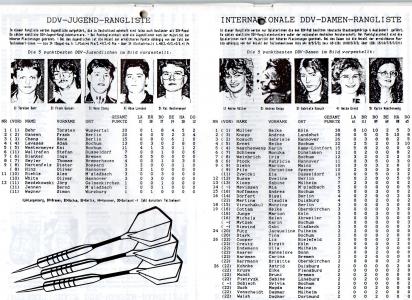 The first nine-darter in German threw 1988 Scotsman Derek Thompson who was the Hessen champion in 1986, 87 and 88. He started to play DDV events in 1988.
The first nine-darter in German threw 1988 Scotsman Derek Thompson who was the Hessen champion in 1986, 87 and 88. He started to play DDV events in 1988.
In the 1980s the DDV rankings still were "International DDV Rankings" in which you can find beside Colin Rice quite a number of British, American and Canadian players among them Abbie Burke from Munich who was four years in a row German Pair's Champion. Of him it is told he decided to retire from darts after he had practiced for a few days with Phil Taylor who stayed in Munich for exhibitions.
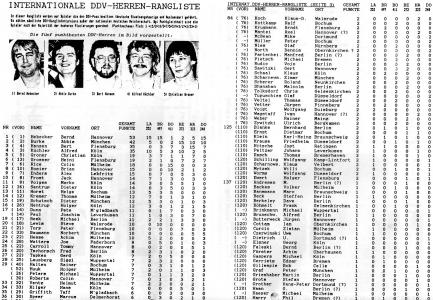
International Success
Before 1990 none is known of international success of German players in BDO or WDF tournaments. In the quarterfinals of the Dutch Open 1984 you can find a Steve Benge labelled as German, but probably he was an American based in Germany.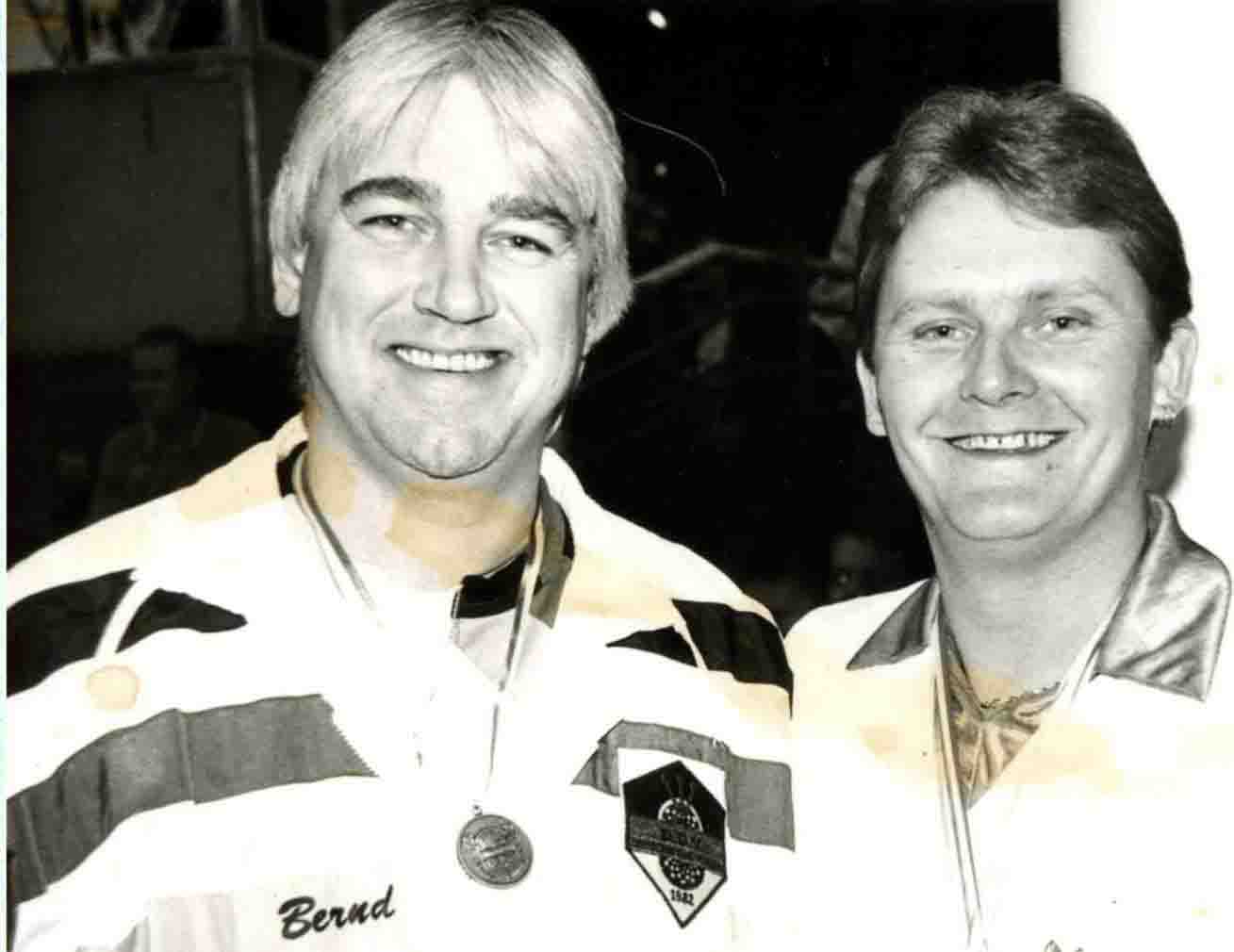 In the 1990s it started to change. In 1991 the German youth team won the WDF Europe Cup and the German men the Four Nations Cup. In 1992 a WDF ranking event was played in Berlin and won by Andy Kröckel, Andree Welge was the runner-up. 1993 Bernd Hebecker is the first known German player to take part in the BDO World Championship.
In the 1990s it started to change. In 1991 the German youth team won the WDF Europe Cup and the German men the Four Nations Cup. In 1992 a WDF ranking event was played in Berlin and won by Andy Kröckel, Andree Welge was the runner-up. 1993 Bernd Hebecker is the first known German player to take part in the BDO World Championship.
The DDV is still busy to build up a working structure. The number of members is increasing all the time. 1995 a financial crisis shakes the organisation but it survives. 1997 the DDV first appears on internet. 2001 the state associations have a rather difficult time - it is a problem to find organisers for the ranking tournaments, more regional events are played which seem to be much more popular. 2002 the Dart Bundesliga is introduced. WDF tournaments in Germany by now are granted though German winners with the exception of Heike Ernst (today Jenkins) are rare.
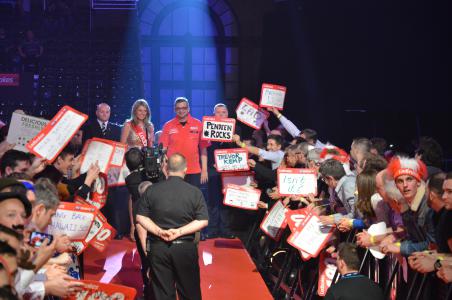 In 2003 Tomas Seyler is the first German who gets a Wild Card for the World Darts Trophy, a BDO Major. In the same year the Germans again take part in the WDF World Cup and of course it is again Heike Ernst who is most successful - she reaches the semifinals of the women's singles. Tomas Seyler is the most successful German player in those years. Together with Andre Welge he is successful as a pair's player - 2004 they win together the pairs of the Dutch Open, 2005 the pairs of the German Open and 2009 of the Dortmund Open. 2005 and 2012 Seyler is the winner of the WDF German Gold Cup. 2001, 2003 and 2004 he wins the national championship.
In 2003 Tomas Seyler is the first German who gets a Wild Card for the World Darts Trophy, a BDO Major. In the same year the Germans again take part in the WDF World Cup and of course it is again Heike Ernst who is most successful - she reaches the semifinals of the women's singles. Tomas Seyler is the most successful German player in those years. Together with Andre Welge he is successful as a pair's player - 2004 they win together the pairs of the Dutch Open, 2005 the pairs of the German Open and 2009 of the Dortmund Open. 2005 and 2012 Seyler is the winner of the WDF German Gold Cup. 2001, 2003 and 2004 he wins the national championship.
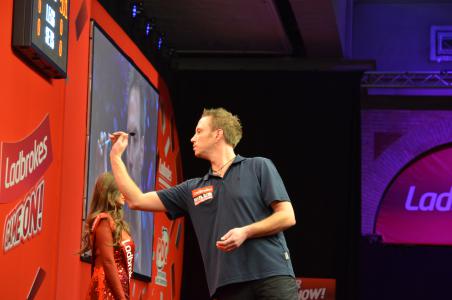 At the beginning of 2005 for the first time Darts is televised live on German TV - the DSF got the television rights of parts of the PDC World Championships while the BDO World Championship is live on Eurosport. As a result membership numbers in dart clubs increases and a lot of new clubs is founded.
At the beginning of 2005 for the first time Darts is televised live on German TV - the DSF got the television rights of parts of the PDC World Championships while the BDO World Championship is live on Eurosport. As a result membership numbers in dart clubs increases and a lot of new clubs is founded.
During the PDC World Championship 2006 for the first time two German participants stand at the oche - Tomas Seyler and Andree Welge both got a wildcard from the DSF. As Seyler Welge several times won the German national championship. Beside he won the German Masters in 1991, 2005, 2006 and 2008 and wins the BILD Super Darter title in 2012. He has even one up on Seyler - in 2002 he already had received a wildcard for a World Championship - for the BDO World Championship. br/>
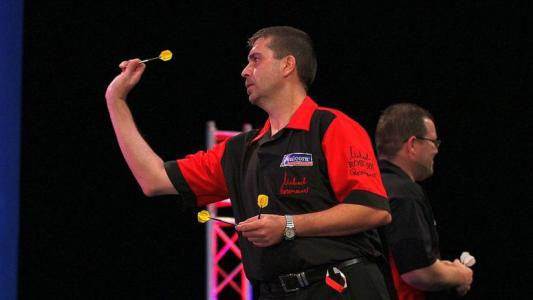 2006 is the most successful year of another German top player - Michael Rosenauer. Rosenauer - better known at this time as a soft-dart player - reaches the last 16 of the Winmau World Masters and wins the Malta Open. So he is back for the World Masters in 2017. Tomas Seyler gets again a DSF Wildcard for the PDC World Championship 2007.
2006 is the most successful year of another German top player - Michael Rosenauer. Rosenauer - better known at this time as a soft-dart player - reaches the last 16 of the Winmau World Masters and wins the Malta Open. So he is back for the World Masters in 2017. Tomas Seyler gets again a DSF Wildcard for the PDC World Championship 2007.
In June 2017 the German girls win all the titles of the Europe Cup youth in Folkestone. New in 2007 is the Bundesliga Live ticker on the DDV Homepage.
2008 it was Michael Rosenauer who caused indignation - he qualified for the BDO World Championship but heads the GDC Order of Merit as well which means he is as well qualified for the PDC World Championship. Rosenauer decides for the PDC but is defeated first round by Mervyn King.
After a comparatively quiet time for the DDV in 2010 the board got in difficulties again -and it takes some time to occupy all positions again. Once again money is an important issue. But despite all the difficulties the old board in the end had achieved a target - after long efforts the DDV was admitted into the DOSB and darts is now a recognised sport in Germany. But now the DDV has a new problem - the PDC Europe.
The PDC Europe, situation today
Very important for the development of the sport of darts in Germany and strongly influenced by the TV transmissions of the DSF (today sport 1) was the founding of the GDC in 2006 by Werner von Moltke. Von Moltke wanted to bring the PDC top players to Germany and beside to support or groom German Top Players. To that end he organized two "Meet the Power" events. During the second event a wildcard for the PDC World Championship 2007 was on offer which went to Austrian Anton Pein. A series of German ranking events followed by which a German player could qualify for the PDC World Championship. In close cooperation with the PDC first Pro Tour events took place in Germany - the first one in Bad Soden.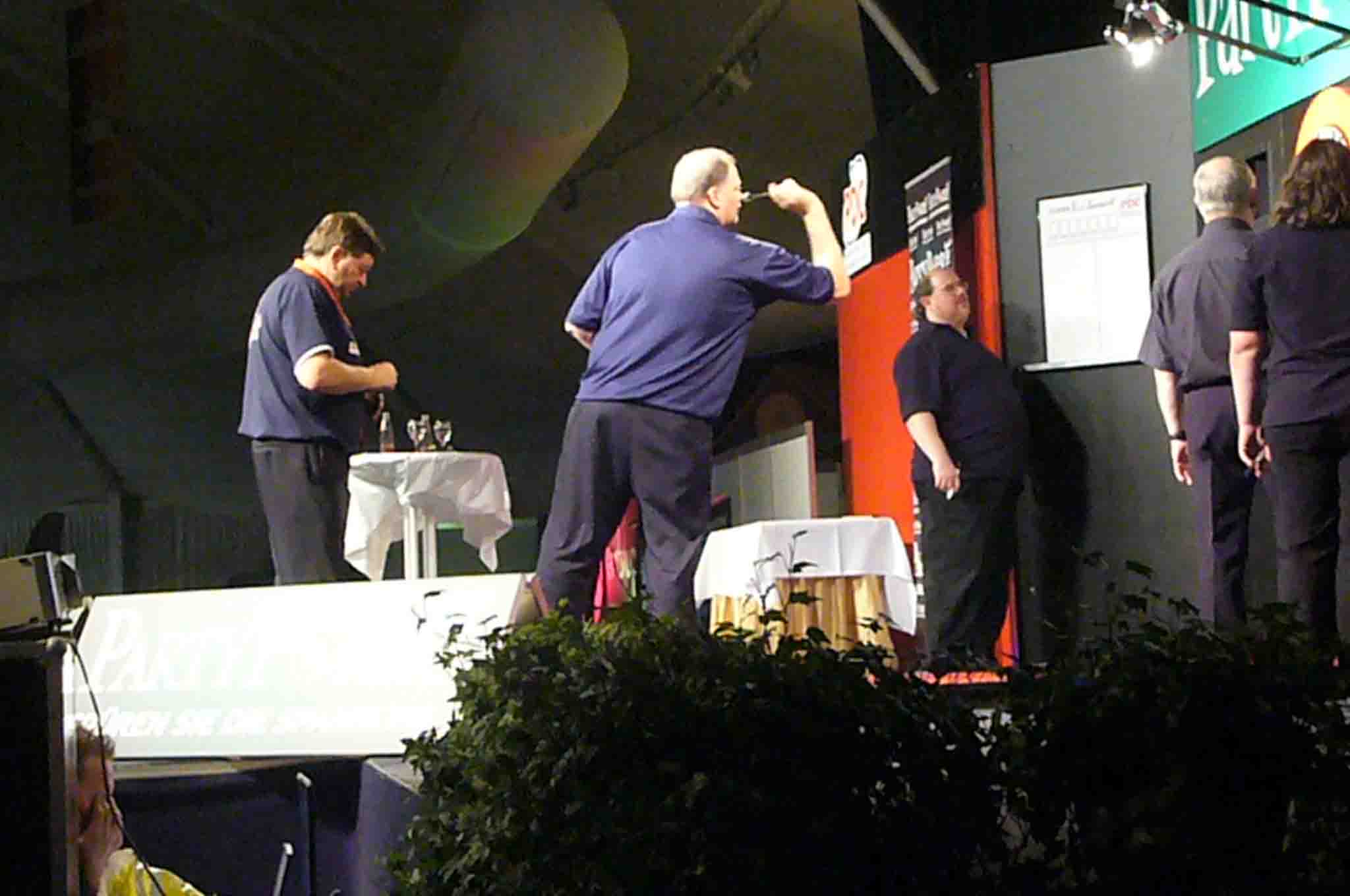 Since than the German players have the chance to play against the PDC Top players on the continent and the German fans are able see their "idols" live.
Since than the German players have the chance to play against the PDC Top players on the continent and the German fans are able see their "idols" live.
Already in the very first year the GDC organized a PDC Major event - the German Darts Championships which took place for the first time in November 2007 in Halle in Westfalen. It doesn't exist any longer but was replaced for a few years by the European Championship. The European Championship moved on to Belgium and a new Major appeared on German soil - the PDC World Cup. In 2008 the GDC organized a German Championship which was won by Jyhan Artut who was rewarded with a place in the PDC World Championship 2009. Artut played for several years as the German number 1 on the PDC Pro Tour.
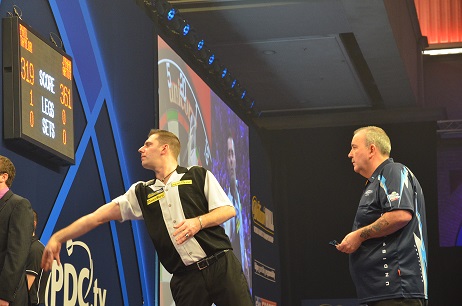 2009 the GDC changed the name into PDC Europe and the PDC introduced the European Order of Merit for all events played on the continent. By this players could qualify for the European Championship and the World Championship. The European Order of Merit changed in relevance over the years and even disappeared for some time. It is back but by now you can't qualify by it for the World Championship any longer - for this objective from 2017 Qualifiers all over Europe will take place. Might be it happened because the PDC got the impression as most of the continental events and Host Nation qualifiers take place in Germany German players have an advantage over other continental players while the PDC wants to open up for all continental players.
2009 the GDC changed the name into PDC Europe and the PDC introduced the European Order of Merit for all events played on the continent. By this players could qualify for the European Championship and the World Championship. The European Order of Merit changed in relevance over the years and even disappeared for some time. It is back but by now you can't qualify by it for the World Championship any longer - for this objective from 2017 Qualifiers all over Europe will take place. Might be it happened because the PDC got the impression as most of the continental events and Host Nation qualifiers take place in Germany German players have an advantage over other continental players while the PDC wants to open up for all continental players.
For a few years the PDC Europe organized a Premier League for teams from Germany and Austria but the teams soon lost interest and dates collided with the German Bundesliga. More successful were the Bulls Super Leagues Germany and Eastern. It was very popular with the participants of Super League Eastern and players like Mensur Suljovic, Rowby-John Rodriguez and Zoran Lerchbacher attributed their improved performances to the Super League. Today only Super League Germany still exists. It is no longer sponsored by Bulls but by Target.
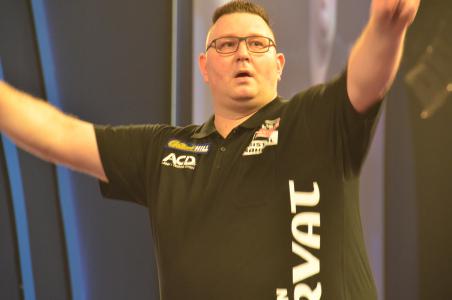 The German Super League till now was not really a success - many of the German top players soon bowed out of not known reasons and tried to find an individual way into the top places of the PDC rankings - till now without consistent success. Those players who managed to qualify by the Bulls Super League for the PDC World Championship till now were even less successful.
The German Super League till now was not really a success - many of the German top players soon bowed out of not known reasons and tried to find an individual way into the top places of the PDC rankings - till now without consistent success. Those players who managed to qualify by the Bulls Super League for the PDC World Championship till now were even less successful.
After a few years the Players Championships played on the continent were replaced by the PDC European Tour which is expanding every year. Most of the events take place in Germany and every time four Host Nation qualifiers get a chance to play in the tournaments. But here consistency is an issue as well - none of the German players seems to be able to really consistently qualify for the events - Germany is still looking for a real Top player who is able to keep up internationally.
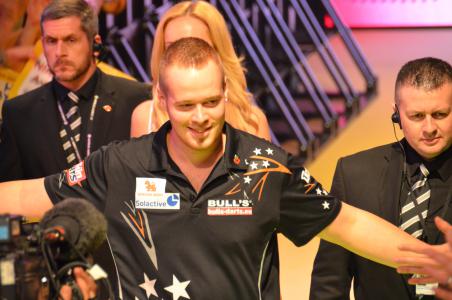 Over the last years the hopes are mainly pinned on Max Hopp who was a very successful WDF youth player before he stood with not yet 17 years for the first time at the oche of a PDC world Championship in 2013. His till now biggest achievements in the PDC were his win of the PDC Unicorn Youth World Championship in 2015, the quarter final of the PDC world Cup 2015 together with Jyhan Artut and the quarterfinal of the European Darts Matchplay 2016, an event of the European Tour. Difficult to say whether he'll really develop into a consistent top player - he still is very young
Over the last years the hopes are mainly pinned on Max Hopp who was a very successful WDF youth player before he stood with not yet 17 years for the first time at the oche of a PDC world Championship in 2013. His till now biggest achievements in the PDC were his win of the PDC Unicorn Youth World Championship in 2015, the quarter final of the PDC world Cup 2015 together with Jyhan Artut and the quarterfinal of the European Darts Matchplay 2016, an event of the European Tour. Difficult to say whether he'll really develop into a consistent top player - he still is very young
Since the introduction of the PDC Tour Card always a few German players manage to get one. We had by now Bernd Roith, Tomas Seyler, Andree Welge, Michael Rosenauer, Jyhan Artut and Max Hopp as German Tour Card holders. At the moment we've Max Hopp, Martin Schindler and Maik Langendorf on the Pro Tour. But till now it always happened that most players lost their Tour Cards soon by sliding down the rankings. From time to time German players managed to qualify for the UK Open but all lost early rounds.
Future
For the German top players the situation was and still is not really easy - they have to decide whether to play WDF/BDO tournaments or the PDC Europe events. Players like Michael Rosenauer who decide for the PDC World Championship are allowed to play Bundesliga or national tournaments but are not allowed to WDF tournaments and are excluded from the national team. It almost looks Rosenauer failed at this hurdle; at least one didn't hear much from him since that time.One can't say at the moment where the sport of darts will develop in Germany. Certainly a problem is that both organisations rarely work together. So the DDV now has the mostly thankless task to work for grass root darts, where it at least has international success in Youth and women's darts while the PDC Europe attracts the German top players and organises well to market tournaments with the best players of the world. We now have the situation that the number of dart fans is increasing while the number of active players stagnates.
The situation is quite similar to the situation in the UK where the BDO and the PDC rival each other. There a discussion started as well whether the sport begins to turn into a spectator sport while young people seem to lose interest.
A satisfying solution for those involved is nowhere in sight.
This overview over the history of the sport of darts in Germany to be sure still is far from complete. Should somebody be able to throw in more details I would be very pleased.